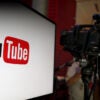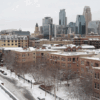Edward Snowden, the self-glamorizing leaker of National Security Agency secret programs, is still holed up in an airport in Moscow, where he’s been stuck for two weeks. The United States has warned Russia and other countries not to let him travel by air. Snowden is hoping to make it to Venezuela, out of reach of the U.S. government, which has promised to prosecute him to the fullest extent of the law.
The fact is that Snowden, who bills himself as a kind of freedom fighter, has chosen some quite unlikely host countries to help him in his quest, countries with questionable to abysmal records of media freedom:
- Russia. Freedom of speech does not exist in Russia. Since Vladimir Putin came to power, at least 19 journalists have been murdered. A series of vague laws, allegedly attempting to get rid of information unsuitable for children and to protect religious freedom, have given the government the power to punish nearly any public action if it doesn’t have government approval. All major media is owned by the state or by state-owned companies. The right to protest has been severely restricted, and anti-Kremlin protestors consistently face massive and harsh police response, while pro-Kremlin protestors can act with impunity. The courts are simply a voice for the Kremlin. There has also been a disturbing return to the Soviet practice of punitive psychiatric treatment. Freedom House has ranked Russia as “Not Free.”
- Venezuela. Journalists in Venezuela are repressed. Violence against journalists and government intimidation is pervasive. The 2004 Law on the Social Responsibility of Radio and Television allows the Venezuelan government to control all non-print media. Print media is also under attack from the state’s regulators. The right to public assembly still exists—nominally—but the government has been cracking down on protestors over the past few years, some of whom are tried in military courts. Freedom House has ranked Venezuela as “Partly Free.”
- Bolivia. There have been some complaints about government censorship in Bolivia, because the vague wording of an antiracism bill allows some government censorship of the press. There have been acts of violence committed against journalists, though it is hard to tell who is responsible for these actions, as the cartels are frequently blamed. Freedom House rates Bolivia as “Partly Free.”
- Nicaragua. Nicaragua is entirely dominated by the Sandinista party, and there are widespread concerns about the politicization of government institutions and the press. Though largely free, some news entities (particularly radio ones) have been nationalized and given to party loyalists. Journalists—particularly those who criticize the ruling party—are harassed and receive death threats. Freedom House rates Nicaragua as “Partly Free.”
If you can know a man by his friends, Snowden’s choices speak volumes about him and his personal vendetta against the United States. Maybe his choices are not so unlikely after all, considering that none of them is exactly a friend of the U.S.































